The following is a list of the candidates for the upcoming 2023 SSC elections.
Part 1: SSC Executive Positions
Erica E. M. Moodie (Nominee for President-Elect)
Eri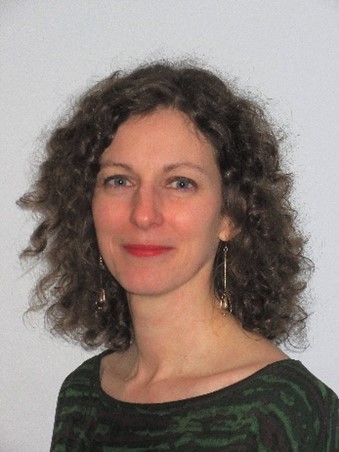 ca Moodie is a professor in the Department of Epidemiology & Biostatistics at McGill University and a Canada Research Chair (Tier 1) in statistical methods for precision medicine. She received her PhD in 2006 from the University of Washington. She is the 2020 recipient of the CRM-SSC Prize in Statistics and an elected member of the International Statistical Institute. Dr. Moodie serves as an associate editor of Biometrics and a statistical editor of Journal of Infectious Diseases. She holds a chercheur de mérite career award from the Fonds de recherche du Québec-Santé. She has served on the SSC elections committee, on the SSC bilingualism committee, as the SSC representative to the Centre de recherche de mathématique (CRM), and as the scientific program chair for the 2017 annual meeting. She is currently completing her mandate as the director of the statistics lab at the CRM.
ca Moodie is a professor in the Department of Epidemiology & Biostatistics at McGill University and a Canada Research Chair (Tier 1) in statistical methods for precision medicine. She received her PhD in 2006 from the University of Washington. She is the 2020 recipient of the CRM-SSC Prize in Statistics and an elected member of the International Statistical Institute. Dr. Moodie serves as an associate editor of Biometrics and a statistical editor of Journal of Infectious Diseases. She holds a chercheur de mérite career award from the Fonds de recherche du Québec-Santé. She has served on the SSC elections committee, on the SSC bilingualism committee, as the SSC representative to the Centre de recherche de mathématique (CRM), and as the scientific program chair for the 2017 annual meeting. She is currently completing her mandate as the director of the statistics lab at the CRM.
Wesley Yung (Nominee for Treasurer)

Wesley Yung is the director of the International Cooperation and Methodology Innovation Centre at Statistics Canada. During his 32-year career at Statistics Canada, he has provided methodological support for both business and household surveys. Wesley holds a PhD in statistics from Carleton University and a BSc and MSc from Dalhousie University. He is an elected member of the International Statistics Institute, was the editor of Survey Methodology from 2016 to 2020, a board member of the Canadian Statistical Sciences Institute from 2015 to 2020 and served as president of the Survey Methods Section of the Statistical Society of Canada in 2014.
Xin Gao (Nominee for Meetings Coordinator)

Xin Gao is a professor of statistics at York University. She obtained an MSc in statistics from University of Illinois at Chicago and a PhD in statistics from University of Ottawa. She joined the Department of Mathematics and Statistics in 2003. Gao’s research areas include machine learning, computational statistics, statistical theory, high-dimensional data analysis, and data science. She is especially interested in research which will allow her to develop statistical methodologies for biological data analysis, including genetic mapping, microarray data analysis, proteomic data analysis, construction of gene regulatory networks, etc. In the past, she has served as the president of Southern Ontario Chapter of Statistical Society of Canada, an associate editor of Canadian Journal of Statistics, and a board member of the Statistical Society of Canada.
Part 2: Candidates for Regional Representatives
Atlantic Region
Lam Si Tung Ho

Lam Ho is currently an associate professor and a Canada Research Chair (Tier 2) in stochastic modelling at the Department of Mathematics and Statistics, Dalhousie University. He received his PhD in statistics from the University of Wisconsin-Madison in 2014. Before joining Dalhousie University, he worked as a postdoctoral researcher at the University of California, Los Angeles. He is interested in statistical theory and methods for stochastic models in evolutionary biology and infectious disease epidemiology. During 2018–2021, he served on the SSC new investigators committee.
Asokan Variyath

Asokan Mulayath Variyath is an associate professor of statistics in the Department of Mathematics and Statistics at Memorial University. During 1991–2001, he worked as a faculty member at the SQC & OR division of Indian Statistical Institute. He obtained his PhD in statistics from the University of Waterloo in 2006, and then moved to Texas A & M University as postdoc. In 2008, he joined Memorial University as assistant professor of statistics. His main research interests are industrial statistics, design of experiments, empirical likelihood based variable selection, survival analysis, and longitudinal studies. He engaged in teaching and research at MUN and published research articles in leading journals. He undertook the project, “Improving the Students' Learning Process through the Use of Statistical Applets”, at MUN. He served as deputy head of graduate studies of the department for 3 years. Currently he is serving as the chair of the 1-year Master of Data Science program. He has served SSC as a member of the students travel grant committee, president of SSC Education Section 2018–19, co-chair of the virtual organizing committee of SSC Annual Meeting 2021, and virtual organizing committee of SSC Annual Meeting 2022.
Quebec
Christian Léger
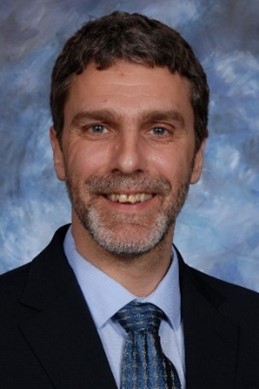
Christian Léger is professor in the Department of Mathematics and Statistics at Université de Montréal. He has served the SSC in various capacities. He first served on a committee in the late 80s and was elected as regional representative of Quebec for three mandates in the 90s and the 2000s. He was appointed as local arrangements chair of the 2004 annual meeting, program chair of the 2010 annual meeting, and program secretary (2005–08) serving as a non-voting member of the executive committee. He was elected as a member of the executive committee first as secretary, now called executive secretary (1998–2000), and most recently as president (including elect and past, 2011–14). Among the accomplishments of the board during his mandate are the creation of the Actuarial Science Section, the permanent office, the Student Conference, and Census at School. Following a strategic planning exercise that took place during that mandate, he was invited to create and chair the fundraising committee which has organized yearly fundraising drives since 2016. In recognition for his service, he was awarded the SSC Distinguished Service Award in 2009. He has also served the statistical community in many other ways, notably as interim director of the Centre de recherches mathématiques (CRM), member of the NSERC Statistical Sciences grant selection committee, member of Statistics Canada's advisory committee, and program chair of the Joint Statistical Meetings in 2018. Christian received a BSc in mathematics from McGill University in 1983 and a PhD in statistics from Stanford University in 1988. His research interests involve resampling methods, model selection, and various applications. If elected, he will put his wide experience to work for the SSC and would serve the SSC in a fifth decade.
Bouchra Nasri
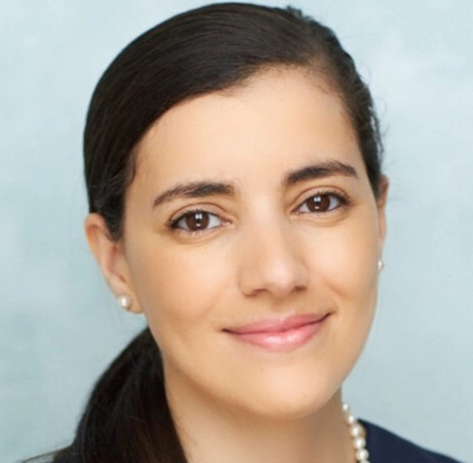
Bouchra Nasri is a faculty member of biostatistics in the Department of Social and Preventive Medicine. Prof. Nasri is an FRQS Junior 1 Scholar in artificial intelligence in health and digital health. She holds an NSERC Discovery Grant in statistics for dependence modelling for arbitrary distributions. Prof. Nasri and her team are working mainly on developing statistical learning methods, artificial intelligence methods, and mathematical models for infectious diseases and public health threats related to climate change. Prof. Nasri is currently the chair of the SSC equity, diversity, and inclusion committee, and the managing editor of the Canadian Journal of Statistics.
Léo Raymond-Belzile

Léo Raymond-Belzile is an assistant professor in the Department of Decision Sciences at HEC Montréal. He obtained a PhD in statistics from EPFL in 2019 and an MSc from McGill University. His research interests gravitate around extreme values and applications, and he has a keen interest in evidence-based teaching and reproducibility in applied research. A member of the SSC since 2013, Léo has served on various SSC committees: as member and chair of the student and recent graduate committee (SARGC, 2014-2017), of the committee on membership (2019–2024), and as ex officio on the public relations committee. He also volunteered to serve on CANSSI's website committee.
Ontario
Camila de Souza

Camila de Souza is an assistant professor in statistics and data science at the University of Western Ontario. She is also the director of Western Data Science Solutions, a service that provides campus-wide statistical consultation and workshops via graduate students. Before joining Western, Dr. de Souza was a postdoctoral fellow at the Shah Lab for Computational Cancer Biology at the BC Cancer Agency Research Centre. She completed her PhD in statistics at the University of British Columbia (UBC). She is originally from Brazil, where she received her master’s and bachelor’s degrees in statistics at the University of Campinas. Dr. de Souza’s research program consists of developing novel statistical methods to analyze large and complex data structures from various areas and collaborations in the natural sciences, health, and engineering. Her research involves techniques such as clustering, hierarchical mixture models, mixed effect models, hidden Markov models, nonparametric regression, semi-parametric models, expectation-maximization (EM) algorithm, and Bayesian variational inference.
Hanna Jankowski

Hanna Jankowski is a full professor in the Department of Mathematics at York University in Toronto (Keele campus). She received her PhD in statistics from the University of Toronto in 2006 and completed an NSERC postdoctoral fellowship at the University of Washington in 2007 and 2008.
Her research interests include primarily shape-constrained nonparametric and semiparametric estimation methods and statistical methods in mathematical biology.
She is a member of the Canadian Centre for Disease Modelling and a part of the OMNI-RÉUNIS NSERC Emerging Infectious Diseases Modelling Initiative network. She served as president of the SSC Chapter of the Southern Ontario Regional Association (SORA) from 2015 to 2018 and has been a part of the SORA board of directors since, she is currently serving as member at large. She represents York University with the Fields Institute and with CANSSI and has previously served on the PR committee for the SSC. Since 2022, she has also served as the chair of the equity, diversity, and inclusion, and decolonialization committee for OMNI-RÉUNIS.
Paul Peng

Yingwei (Paul) Peng is professor of biostatistics at Queen’s University. He obtained his PhD in biostatistics in 1998. He was as an assistant professor (1998–2003) and associate professor (2003–2006) at Memorial University of Newfoundland. He joined Queen’s University as associate professor in 2007 and has been full professor in the Department of Public Health Sciences and the Department of Mathematics and Statistics since 2013. He is also a biostatistician at the Cancer Care & Epidemiology Division of Queen’s Cancer Research Institute. He was a visiting professor at the University of Michigan (2005–2006), Nanyang Institute of Technology in Singapore (2015), and Dalian University of Technology (2016). His main research areas in statistical methodology include survival analysis, statistical computing, statistical models and methods for observational studies. He also collaborated with clinical scientists and health researchers. His papers appeared in mainstream biostatistics journals as well as in health journals. His methodology research in cure models with highly cited papers and a recently published CRC-Chapman Hall book established his international reputation in this field.
Yingwei Peng served as the associate editor of the Canadian Journal of Statistics between 2010 and 2021. He is currently an associate editor of Statistics in Biosciences and a member of statistics board for the Journal of Urology. He has also served as statistics advisor for BMC-series journals and a reviewer for Mathematical Reviews, and has provided review services to most of the mainstream statistics journals and to NSERC grant proposals as well as to the selection panels for CIHR and NCIC Project Grants.
Yingwei Peng helped create the collaborative MSc program in biostatistics at Queen’s University in 2008 and is the founding director of the program, he also helped launch the Queen’s CANSSI Health Science Collaborating Centre, and organize the 5th ICSA Canada Chapter Symposium in Banff, Canada in July 2022. He served as a member and the chair of the Statistical Society of Canada Pierre Robillard committee since 2017. He is the chair of the ICSA Canada Chapter (past-hair, 2023-, chair, 2021–2022, and chair-elect, 2019–2020). He has also served as a member at large, executive committee of SORA (Southern Ontario Regional Association of the Statistical Society of Canada and the Southern Ontario Chapter of the American Statistical Association) since 2020.
Manitoba, Saskatchewan, N.W.T., Nunavut
Juxin Liu
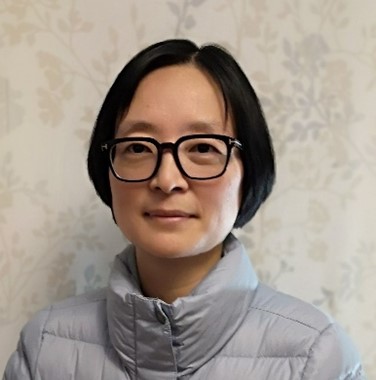
Juxin Liu is a full professor in the Department of Mathematics and Statistics at the University of Saskatchewan. Her recent research interests include time series models, system dynamic models, network analysis for microbiome data, and particle filtering methods. She has been collaborating with colleagues from different disciplines such as computer scientists, biologists, and clinical physicians. She was the founding director of the CANSSI Saskatchewan Health Science Collaborating Centre (2018–2022). She has been an active member of the Affiliated Researcher Alliance for the Saskatchewan Centre for Patient Oriented Research (SCPOR) since 2015. She served on the SSC student travel award committee (2015–2018) and is currently a member of the SSC EDI committee. She is currently one of three regional representatives for the International Chinese Statistical Association (ICSA) Canada Chapter.
Andrei Volodin

Andrei Volodin is a professor of statistics in the Department of Mathematics and Statistics at the University of Regina. His research activities include asymptotic statistics, shrinkage methods and limit theorems. Andrei completed his PhD degree in mathematics from Vilnius University, Lithuania (1991), and PhD in statistics from the University of Regina (2002).
He has served on various SSC entities, including the chair of the Probability Section and currently the chair of the Canadian Journal of Statistics Award committee. He is an adjunct professor at Thammasat, Kasatsart, and Mahasarakham Universities in Thailand.
Alberta, BC, Yukon
Daniel J. McDonald

Daniel J. McDonald is associate professor of statistics and co-chair of graduate studies at the University of British Columbia in Vancouver. Before joining UBC, Daniel spent 8 years on the faculty at Indiana University, Bloomington. Daniel did his undergraduate studies at Indiana University where he received a Bachelor of Science in Music with a concentration in cello performance from the Jacobs School of Music and a Bachelor of Arts in economics and mathematics. He received his PhD in statistics in 2012 from Carnegie Mellon University in statistics, and his dissertation was awarded the Umesh Gavasakar Memorial Thesis Award. In 2017, he was a recipient of the Indiana University Trustees Teaching Award. In 2018, he received a National Science Foundation CAREER award.
His research interests involve the development and analysis of statistical methodology, especially the estimation and quantification of prediction risk. Since the beginning of the COVID-19 pandemic, much of his work has focused on methods for understanding and modelling epidemiological data. He is a core member of the BC COVID-19 Modelling Group, and he works on research, forecasting, nowcasting, and software development with Carnegie Mellon University's Delphi Research Group.
Hua Shen

Hua Shen is an assistant professor of biostatistics in the Department of Mathematics and Statistics and is jointly hired in the Natural Sciences Program at the University of Calgary. She received her PhD in statistics and Master of Mathematics in biostatistics from the University of Waterloo. Her research interests are in the methodology development and statistical analysis of complex and imperfect lifetime data arising from public health and medical research. She receives funding support from NSERC, CIHR, provincial government, industry, and charitable trust for her independent and collaborative research. She served on the conference program committees for ICSA-Canada Chapter Symposium and Canadian Conference in Applied Statistics and as a co-organizer for biostatistics workshops at the University of Calgary. Active in SSC, she held several roles such as member of the new investigator committee, judging panels for New Investigator Presentation Award, and judging panel for Case Studies in Data Analysis Poster Competition, and currently she serves as the local representative for the University of Calgary.
Part 3: Section Executive Positions
Actuarial Science Section
Maciej Augustyniak (Nominee for President-Elect)

Maciej Augustyniak is an associate professor in actuarial science at the Department of Mathematics and Statistics of the Université de Montréal. He holds a PhD in statistics, and he is a former Society of Actuaries Hickman Scholar. He is a fellow of the Canadian Institute of Actuaries as well as of the Society of Actuaries. Maciej is a researcher in actuarial science and quantitative risk management with interests in computational statistics, econometrics and quantitative finance. His research aims to develop new models and methods for quantifying and managing long-term risks in actuarial and financial applications. He has previously participated in collaborative research projects in partnership with Autorité des marchés financiers, Caisse de dépôt et placement du Québec, National Bank of Canada, Plant-E Corp, PwC Canada, and the Society of Actuaries.
Biostatistics Section
Cindy Feng (Nominee for President-Elect)
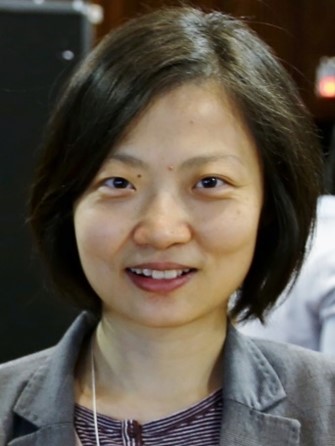
Cindy Feng is an associate professor at the Department of Community Health and Epidemiology, Faculty of Medicine at Dalhousie University, and an adjunct professor at the School of Public Health and Department of Mathematics and Statistics at the University of Saskatchewan. Prior to joining Dalhousie University, she was an assistant and then associate professor at the School of Public Health at the University of Saskatchewan (2012–2019) and associate professor at the School of Epidemiology and Public Health at the University of Ottawa in 2020. She obtained her PhD in statistics from the Department of Statistics and Actuarial Science at Simon Fraser University in 2011. Her research interests lie primarily in developing statistical models for analyzing correlated data in which repeated measurements, hierarchical clustering, multiple outcome types, and spatially correlated data might occur. She is also interested in model checking, residual diagnosis, and model comparison. Cindy has a deep desire to bridge the gap between statistical methods and practice by pursuing methodological development and application of statistical methods in population health, epidemiological, environmental and ecological sciences. She has supervised MSc and PhD students from a variety of backgrounds including biostatistics, epidemiology and public health. Cindy was a regional representative of SSC (2019–2021). She was a member and then chair of the women in statistics committee (2018–2021).
Business and Industrial Statistics Section
Shojaeddin Chenouri (Nominee for President-Elect)

Shojaeddin Chenouri is a professor at the Department of Statistics and Actuarial Science, University of Waterloo, where he currently serves as the associate chair for graduate studies. At Waterloo, he also served as the director of the Statistical Consulting and Collaborative Research unit (2011–2017). His research interest covers nonparametric and robust statistical procedures to analyze data structures from various disciplines such as engineering, health, environmental studies, and humanities. In addition, he has extensive consulting experience and publishes on a wide range of statistical and data science topics.
Data Science and Analytics (President-Elect, Treasurer, Secretary)
Rohan Alexander (Nominee for President-Elect)
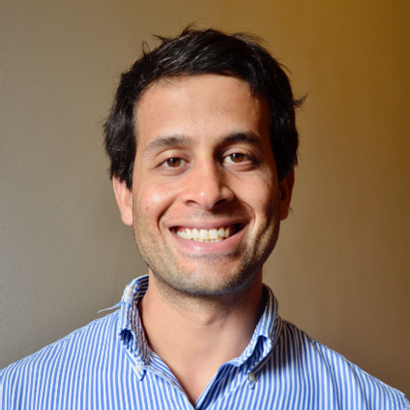
Rohan Alexander is an assistant professor at the University of Toronto, jointly appointed in the Faculty of Information and the Department of Statistical Sciences. He is also the assistant director of CANSSI Ontario, a senior fellow at Massey College, a faculty affiliate at the Schwartz Reisman Institute for Technology and Society, and a co-lead of the DSI Thematic Program in Reproducibility. He holds a PhD in economics from the Australian National University where he focused on economic history and was supervised by John Tang (chair), Martine Mariotti, Tim Hatton, and Zach Ward. His book on foundational data skills, tentatively titled Telling Stories With Data, was accepted for publication by CRC Press. And he is a coeditor (alongside Lauren Kennedy and Andrew Gelman) of a book tentatively titled Multilevel Regression and Poststratification: A Practical Guide and New Developments, which was accepted for publication by Cambridge University Press. His research investigates how we can develop workflows that improve the quality of data science. He is also particularly interested in exploring bias in data measurement and collection—whose data are systematically missing—and developing workflows and statistical models to adjust for that.
Lam Ho (Nominee for Treasurer)

Lam Ho is currently an associate professor and a Canada Research Chair (Tier 2) in stochastic modelling at the Department of Mathematics and Statistics, Dalhousie University. He received his PhD in statistics from the University of Wisconsin-Madison in 2014. Before joining Dalhousie, he worked as a postdoctoral researcher at the University of California, Los Angeles. He is interested in statistical theory and methods for stochastic models in evolutionary biology and infectious disease epidemiology. During 2018–2021, he served on the SSC new investigators committee.
Archer Yang (Nominee for Secretary)

Archer Yang is an associate professor in the Department of Mathematics and Statistics at McGill University and an associate member of the School of Computer Science and the Quantitative Life Science program. He is also an associate academic member of Mila–Quebec AI Institute. He completed his PhD in 2015 under the supervision of Professor Hui Zou at the University of Minnesota and his main areas of research are on statistical machine learning, statistical computing, and high-dimensional statistics with applications in biology and genomics, medicine and industry.
Probability Section (President-Elect, Treasurer)
Raj Srinivasan (Nominee for President-Elect)

Raj Srinivasan is a professor of Mathematics and Statistics at the University of Saskatchewan. His research interests are in the area of applied probability and stochastic modelling and in particular, application of queueing and queueing network models to performance evaluation of telecommunication networks. He has served as a consultant to AT&T Bell labs, Nortel and Alcatel during the 90s. His current research interests include call centre modelling and managing airport queues. He served as the head of the Department of Mathematics and Statistics at the University of Saskatchewan for 15 years. He has been collaborating with colleagues from the Indian Institute of Technology, Gandhinagar (IITGN) MNIT, and Jaipur for the past 5 years. He has organized two summer institutes at IITGN in 2015 and 2017 to enhance the research capabilities of Indian graduate students in the broad area of Humanities and Social Sciences focusing in the areas of Global Health and Social Justice. He ran the Saskatchewan Undergraduate Research Internship (SURI) for students from IITGN and MNIT for the past 3 years. He helped organize the Winter Institute on Digital Humanities at IITGN in December 2020. He is also involved in running the Mathematical Contest in Modelling at IIITGN, MNIT, and PDPU for the past several years. He served as a board member of the SSC during 2006–2008.
Aaron Smith (Nominee for Treasurer)

Aaron Smith is an associate professor in the Department of Mathematics and Statistics at the University of Ottawa. His academic work focuses on applied probability and computational statistics, with ongoing funding from NSERC and individual project grants from groups such as MITACS and DRDC.
Aaron received his PhD in mathematics from Stanford University under Persi Diaconis in 2012. He then had a series of short applied position before moving to the University of Ottawa—a postdoc in applied math at Brown, then a postdoc in statistics at Harvard, and finally doing applied statistics at the federal government. Aaron has been an SSC member since 2015, and previously served as a member of the new investigator committee.
Statistical Education Section (President-Elect)
Leo Belzile (Nominee for President-Elect)

Leo Belzile is an assistant professor in the Department of Decision Sciences at HEC Montréal. He obtained a PhD in statistics from EPFL in 2019 and an MSc from McGill University. His research interests gravitate around extreme values and applications and he has a keen interest in evidence-based teaching and reproducibility. A member of the SSC since 2013, Leo has served on various committees, notably as a member and chair of the student and recent graduate committee (SARGC, 2014–2017) and of the committee on membership (2019–2024).
Survey Methods Section (President-Elect, Secretary)
Zeinab Mashreghi (Nominee for President-Elect)
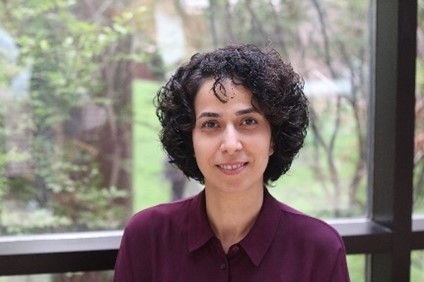
Zeinab Mashreghi is an associate professor at the University of Winnipeg, Department of Mathematics and Statistics. She is also an adjunct professor at the University of Manitoba, Department of Community Health Sciences. Zeinab received her PhD in statistics from Université de Montréal. She joined the University of Winnipeg as an assistant professor in 2016 and was promoted to associate professor in 2020. She served as a member of the SSC committee on membership (2017–2020).
Her main research interests include survey sampling, especially in the fields of nonresponse, resampling methods, imputation, and variance estimation.
Marie-Hélène Toupin (Nominee for Secretary)

Marie-Hélène Toupin is a methodologist for the Statistical Integration Methods Division at Statistics Canada since 2017. She is currently responsible for the methodology of the Survey on the Official Language Minority Population. Her work as methodologist led her to be interested in the impact of the degrees of freedom on the coverage of confidence intervals and in survival models for the prediction of self-responses to the census of the population. She completed her PhD in statistics at Université Laval in 2017. Her research projects were mostly focused on the modelling of multidimensional dependencies based on copula. She also taught mathematics and statistics at college and university levels for 6 years.
Part 4: SSC Accreditation Committee—Five Candidates
Sunita Ghosh

Sunita Ghosh received her master’s degree in mathematics from Kanpur University, India, followed by her PhD in biostatistics from the University of Saskatchewan in 2007. Prior to joining Alberta Health Services–Cancer Care as a research scientist, she was working as a biostatistician in the Department of Agriculture Medicine, University of Saskatchewan. She joined AHS in 2006 and joined the Department of Medical Oncology as an assistant clinical professor in 2009 and was promoted to associate clinical professor in July 2019. Her research interests are in the area of cancer biostatistics, longitudinal data analysis, model prognostication, predictive analysis, survival analysis, quality of life data analysis, and genetic analysis. Apart from her collaborative research work at AHS and the University of Alberta, she also serves as a board member of Health Research Ethics Board of Alberta (HREBA), Investigator Initiated Trial (IIT) research funding committee and Radiation Medical Utilization committee (RMUC).
Lennon Li

Lennon Li is a biostatistical specialist in the informatics department of Public Health Ontario (PHO), where he practises statistical methods with public health applications and develops customized methods and tools for population health monitoring and routine surveillance for over 10 years. Lennon has a PhD in biostatistics from University of Toronto with specialization in spatial statistics and is a Professional Statistician (P.Stat.) accredited by Statistical Society of Canada. He is also an assistant professor with the biostatistics program at DLSPH at Univefsity of Toronto. Lennon is interested in data science and enjoys developing interactive analytical tools that integrate data, methods, visualization as well as content expertise of users to improve research and practice.
You Liang

You Liang is an assistant professor at the Department of Mathematics, Toronto Metropolitan University. She specializes in hyperspectral imaging data analysis, fuzzy modelling and computation, time series, risk management and algorithmic finance. She has published widely in multidisciplinary journals and conferences, including European Journal of Cancer, IEEE International Conference on Fuzzy Systems (FUZZ-IEEE), IEEE Computers, Software, and Applications Conference (COMPSAC) and IEEE Symposium Series on Computational Intelligence (IEEE SSCI). She is an accredited Canadian statistician. You Liang has extensive involvement with and significant contribution to complex data science projects with governments, hospitals, and organizations. For example, she collaborates with researchers at the University of Toronto and St. Michael’s Hospital on a long-term research project about hyperspectral imaging data mining, with funding and support from the Canadian Space Agency, the Fields Institute, the ALS Society of Canada and the Brain Canada Foundation.
Tom Loughin

Tom Loughin is a professor and former chair in the Department of Statistics and Actuarial Science at Simon Fraser University. He has been at SFU since 2006, after 13 years at Kansas State University. At K-State, his appointment was partially supported by the College of Agriculture, for whom he provided extensive statistical consulting services, working with an average of about 100 different researchers per year. He is an accredited professional statistician, maintaining both P.Stat. (SSC), PStat® (ASA). He currently serves on the accreditation committee for the ASA, serving as its chair in 2022. He has coauthored a book, Analysis of Categorical Data with R, with Chris Bilder that focuses on practical data analysis techniques for students and practitioners.
Fritz Pierre

Since September 2021, Fritz Pierre has held the position of Chief of the Centre of Excellence for Statistical Consulting and Analytical Methods at Statistics Canada (StatsCan). He manages this centre of expertise which provides statistical consulting, management, and training services to federal, provincial, and territorial departments and agencies and other national and international agencies. Previously, he worked for just over 12 years at Elections Canada as assistant director, analysis and data quality. His main responsibilities were to plan and coordinate the design and implementation of statistical research and survey methods for studies conducted or commissioned by Elections Canada. He began his career at StatsCan where he worked for over 8 years as a methodologist-statistician. He has contributed to the design and implementation of several surveys including the Canadian Community Health Survey. He has collaborated with several researchers as a consultant in the analysis of data from complex surveys. He is particularly interested in the problem of variance estimation in modelling data from complex surveys. He holds a master's degree in Statistics from the Université de Montréal (Montréal, QC) and is P.Stat. and PStat® (ASA) certified.
SSC Accreditation Appeals Committee—Three Candidates
Edward Chen

Edward J. Chen, P.Stat., was employed as a mathematical statistician (MA) at Statistics Canada since 1986 to his recent retirement in 2021. He was a chief of Methodology and devoted his passion and energy to two of the most important programs at Statistics Canada, namely the Census of Population and the Canadian Labour Force Survey. Edward led a team in improving the address register and ensuring the coverage of the census. Previously, he was a chief of Methodology and devoted over 25 years to the excellence of Canadian Labour Force Survey and other household survey programs in Statistics Canada.
Edward is very active in the statistical and local communities. He has been the SSC accreditation member since 2005 (No. 56). He served two terms as SSC treasurer from 2005 to 2009 when he started putting the SSC finance in good order. He was elected as a SSC board member from 2009 to 2011. He served again as SSC treasurer for two more terms from 2014 until 2019 and left when the SSC is in good financial position. Edward was elected as the SSC board member again from 2020 to 2022.
Edward also serves in many capacities for the SSC including as member of the SSC accreditation appeals committee about 10 years ago, as the chair of the SSC fundraising committee, as the associate editor for the Liaison for 12 years, and in many other SSC committees. Previously, Edward was treasurer of the Statistical Society of Ottawa from 1999 to 2003 and treasurers of other local organizations.
Kevin Keen

Kevin Keen was accredited as a P.Stat. on February 24, 2005, served as an elected member of the accreditation committee from 2014–2016, appointed as chair of the accreditation committee from 2016–2018, and elected as member of the accreditation appeals committee since 2020. He currently is professor of the Department of Mathematics and Statistics at the University of Northern British Columbia and affiliate (full) professor of the Department of Medicine at the University of British Columbia in the division of respiratory medicine.
Johanna G. Nešlehová

Johanna Nešlehová is a professor in the Department of Mathematics and Statistics at McGill University. She obtained an MSc from the University of Hamburg (2000) and a PhD from the Carl von Ossietzky University Oldenburg (2004). After graduation, she was a postdoctoral fellow at ETH Zürich and at the Harvard Medical School, and later a Heinz Hopf Lecturer at ETH Zürich (2006-09). Her current research interests lie in extreme-value analysis and dependence modelling with applications in biostatistics, hydrology and risk management. She is an elected member of the International Statistical Institute, a fellow of the Institute of Mathematical Statistics, and she received the P.Stat. designation in 2015. She is the recipient of the 2019 CRM–SSC Prize in Statistics and McGill's 2019 Carrie M. Derick Award for Graduate Supervision and Teaching. She has been involved with the SSC since her arrival in Canada in 2009. Among others, she served on the Pierre Robillard Award committee (once as chair), The Canadian Journal of Statistics Award committee, the accreditation committee, and on the board of directors of the SSC as Quebec representative. She is the current editor in chief of The Canadian Journal of Statistics.
